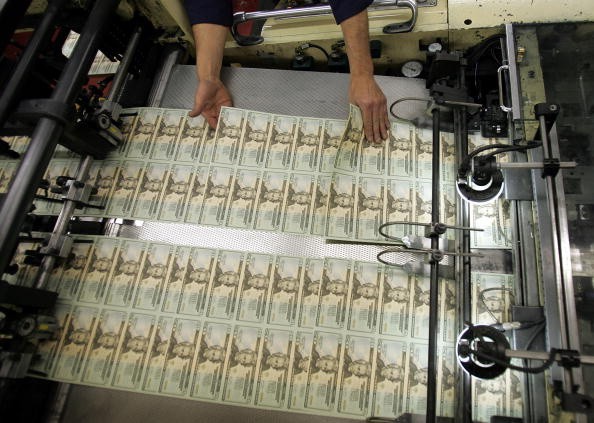US Budget Deficit to Hit $3.3 Trillion Due to Coronavirus Spending
US Budget Deficit for fiscal year 2020 will hit $3.3 trillion, said nonpartisan Congressional Budget Office (CBO) on Wednesday.

This shocking increase in the US budget deficit is due to the government's huge spending in the fight against the coronavirus. An additional $2 trillion to prop up the economy also added to the factors at play, said the CBO.
According to the Associated Press, this spike in the US budget deficit will be greater than the gross domestic product (GDP) next year. This milestone could put the US where it was at the end of World War II, when debt went above the size of the economy.
Bloomberg noted that the deficit for this year equated to 16% of the GDP. It is up 4.6% from 2019.
The $3.3 trillion figure is also three times more than the shortfall seen in 2019. It is also double the levels the country has experienced after the market meltdown and the Great Recession of 2008-09.
Coronavirus response measures are at $6.6 trillion of government spending. The price tag is up by over $2 trillion compared to 2019.
So far this year, more than $3 trillion in emergency aid has been signed into law.
Deficits are likely to fall to $1.8 trillion in the fiscal year starting October 1, said the CBO, and will sum up to $13 trillion over ten years.
In a Reuters report, Peter G. Peterson Foundation Chief Executive Michael Peterson said the report showed who rapidly the country's "unsustainable fiscal challenges" have gone.
Possible Coronavirus Aid Not Included
The CBO forecast did not include a possible new round of coronavirus aid that Congress might consider. The projected value of the assistance is expected to exceed $1 trillion.
Market Watch reported that the government's fiscal deficit had been an irreversible action that people just had to accept or fait accompli.
Maya MacGuineas, president of the bipartisan Committee for a Responsible Federal Budget, said the pandemic is "tragic on so many fronts." She added that "massive borrowing" was the cost of dealing with the current economic pains.
"The warning bells this report contains should not cause a premature end to borrowing, but a commitment to dealing with the debt at the appropriate time," she said.
Tax Revenues Drop
The rise in the US budget deficit also caused a drop in tax revenues, but changes are not as striking as seen on the spending side. Individual income tax collections are only running 11% behind last year. On the other hand, corporate tax collections are down 34%.
Most economists aren't troubled by the huge borrowing as the economy is in peril. It was barely a concern when a $2 trillion relief bill was passed almost unanimously in March.
The scope of a fifth virus relief bill has been in heat lately, though. Lawmakers and the White House are quarreling over its size and scope.
Republicans are on edge about the enormous cost of fighting the economic impacts of the pandemic.
CBO also released a report looking at the health of government trust funds. It concluded three of the trust funds wouldn't be able to pay out the amounts required even within the next decade.
Highway Trust Fund will hit exhaustion by 2021, Medicare's hospital insurance portion will hit it in 2024, and Social Security's Disability insurance will do so 2026.
Check these out!
Mnuchin to Congress: Pass Stand-Alone Coronavirus Relief Bill to Repurpose PPP Funds
Could You Get EIP Cards Instead of Stimulus Checks? Here's What You Need to Know
Meadows Blames Pelosi for Impasse on Coronavirus Relief Talks
Subscribe to Latin Post!
Sign up for our free newsletter for the Latest coverage!

















